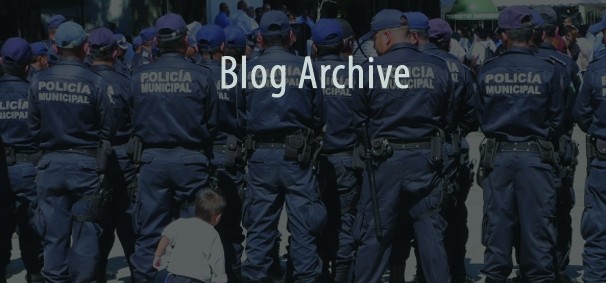In November 2012, Transparency International’s International Defence and Security Programme published a report on the state of police corruption around the world titled Arresting Corruption in the Police. The report presents important insights into police corruption for domestic policy, illustrated though several case studies. Although the report is focused on domestic efforts, it also offers significant conclusions for international actors — especially in how they relate to civil society.
The report cites international influence as a double-edged sword, for instance in Afghanistan where it has sometimes been “as much [a] part of the problem as the solution” (31). While the resources, personnel and experience supplied by international powers are beneficial, the report outlines why they have often failed to effectively support anti-corruption efforts. First, international directives are costly and susceptible to budget cuts, leading to unsustainable programs and operations. Second, international powers can disagree on reform priorities and cause significant programmatic inconsistency. Third, international mandates focus on security and peace rather than supporting, reforming and creating strong state police institutions.
The difficulties of international directives in combatting police corruption must be taken in light of the main recommendation of the report: the efficacy and necessity of civil society in aiding anti-corruption efforts. The report focuses the discussion of international actors on the funding and sustainability of police training and anti-corruption programs, primarily in post-conflict countries (namely, Afghanistan), but in the recommendations the report’s authors fail to emphasize that international actors need to support civil society engagement in police anti-corruption efforts. International efforts can help civil society efforts to combat police corruption in several ways. First, providing the initial security for individuals and groups to discuss the issues in their society is critical in building a civil community. Second, the funding, infrastructure, personnel and knowledge from foreign governments, non-governmental organizations, and business are all useful resources to help kick-start civil society groups and discussions.
Civil society not only provides an effective check and balance to police power, but additionally acts as a method of educating citizens on the role of the police in society. Civil society support can promote legitimacy and citizen engagement. It does not take a monumental amount of work or an excessive amount of resources to help support civil society in post-conflict countries. However, it does require a certain degree of political freedom and absence of government influence. Many of the police anti-corruption failures cited in the report point to the strong presence of political interests in civil society bodies as a factor. International efforts should attempt to restrain political groups from influencing civil society processes, thereby diminishing the influence of domestic politics in such discussions. Rebuilding the social fabric and police-public nexus is critical in helping provide security, especially when it supports trust and cooperation with wider security efforts.
Isaac Caverhill-Godkewitsch is a Research and Communications Intern at the Security Governance Group.
Tags: corruption, Police Reform






 Visit the Centre for
Visit the Centre for